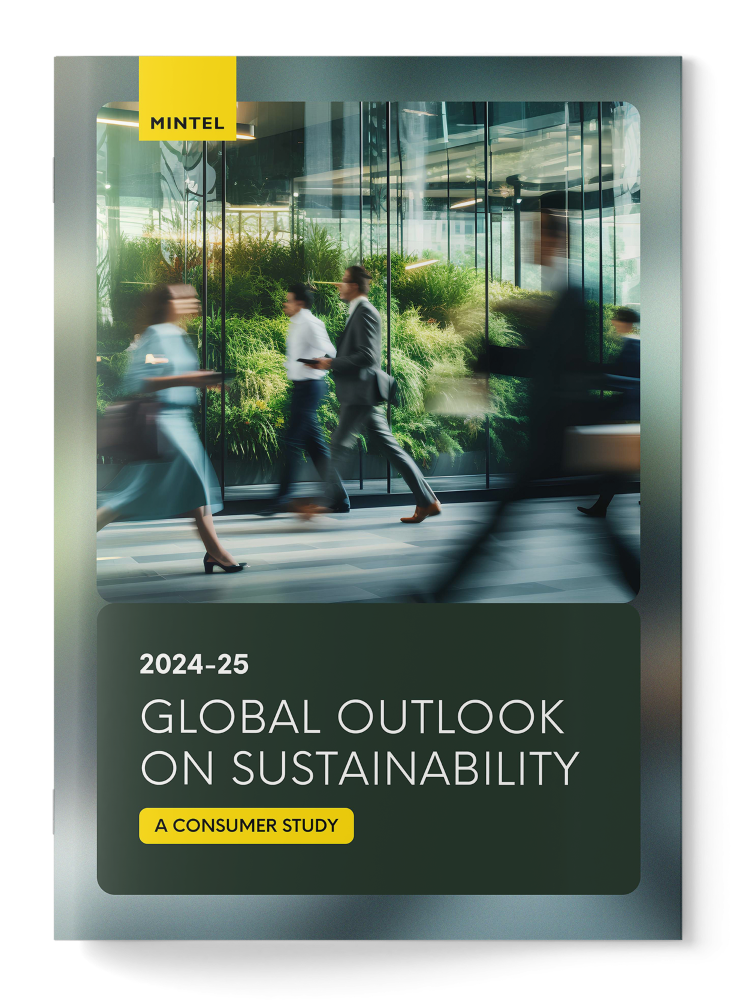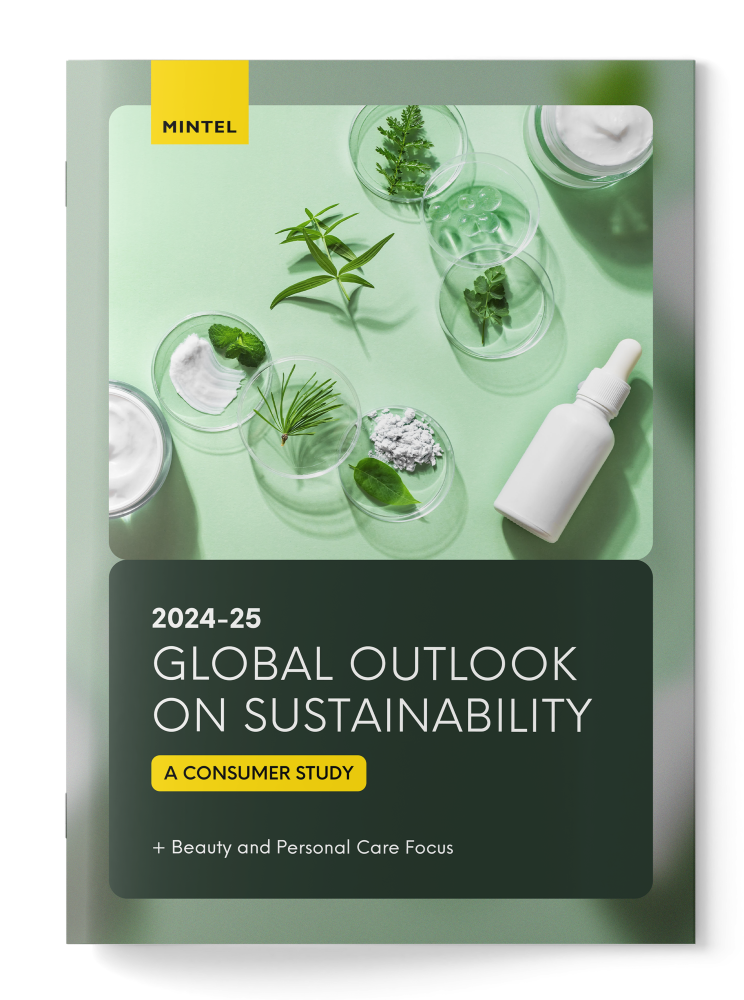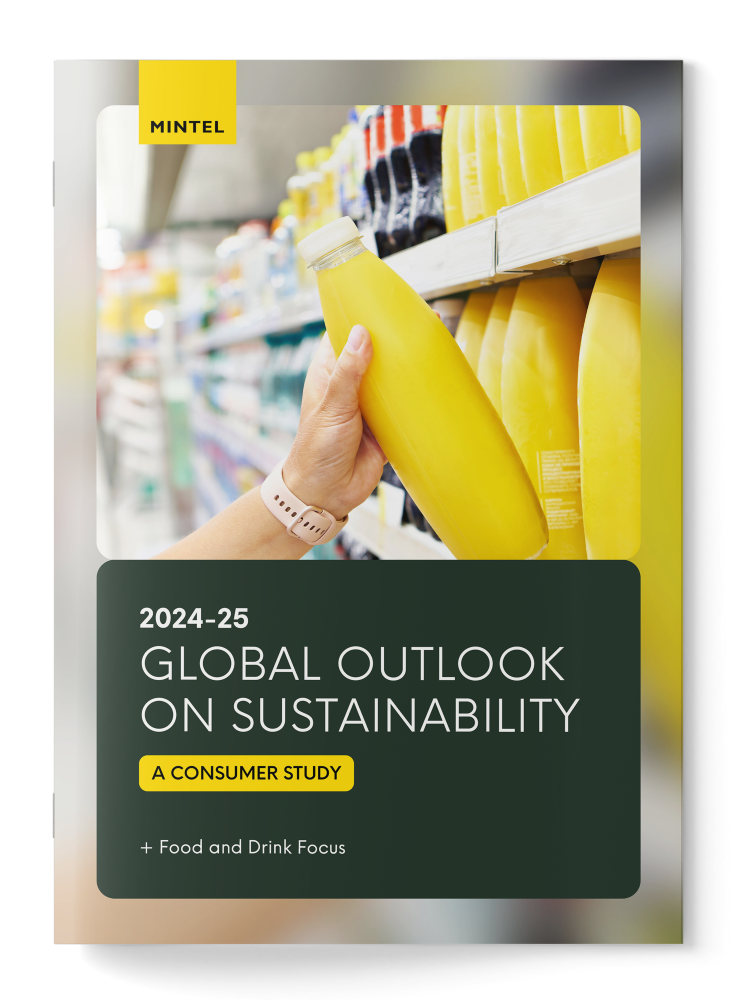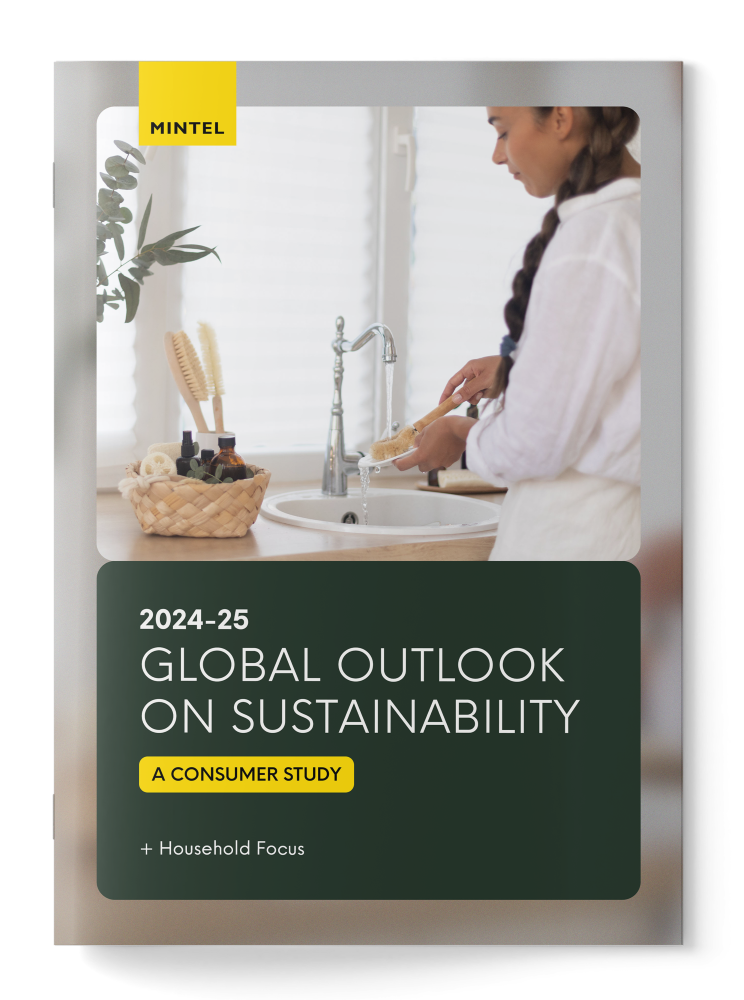Get strategic insight into your global sustainability messaging
Presenting the world’s leading – and largest – consumer sustainability study, now entering its fourth year, our much-anticipated Global Outlook on Sustainability: A Consumer Study 2024-25 serves as a gateway for brands to be more informed and resilient to possibly the most critical subject matter affecting their future. We’re tracking data on consumers’ ever-shifting sustainability perspective, purchasing trends, behaviours and engagement across 10 of the world’s largest economies, including the USA, UK, Brazil, France, Germany, Italy, India, China, Japan, Spain so that you can go beyond the generalities. Gain market-by-market details on how to leverage consumer interest in health, value and human causes, enabling your brand to position products in this new era of conscious consumerism.
Enriched by over 75 innovative products and best-in-class marketing strategies handpicked by Mintel Consultant and Global Outlook on Sustainability author, Richard Cope, the study unveils the most effective tactics for helping responsible products resonate with consumers. This study isn’t just data. It’s your decisive edge in charting a course for commercial success in a sustainably-conscious world.

What you’ll get in the Sustainability report
With ever changing attitudes and behaviours, it’s more important than ever for brands to know how to best position, prioritise and innovate their products in a sustainability-conscious world.
The report enables clients to:
- Gain insights and inspiration on best communications and messages consumers want to see
- Become more informed and resilient to the sustainability challenges ahead
- See the tactics and approaches that work best to make responsible products resonate with consumers
- Understand changing behaviours across diet, recycling, fashion, grocery, and shopping
- Respond directly to consumers’ changing priorities and behaviours across food, fashion, energy and transport
- Be inspired by 75+ best-in-class product and marketing innovations hand picked by Mintel’s analysts worldwide
Find out more about Richard Cope, the author.
The world’s leading consumer sustainability study
Sustainability & consumer insights: What brands need to know
The worldwide shift towards sustainability consciousness is reshaping consumer sentiment. To understand this better, let’s examine how consumer attitudes are changing in response to climate change, and explore where they seek sustainable solutions that deliver both efficiency and value.
Our study reveals that climate change, air quality and global warming are the top three sustainability concerns, illustrating that sustainable consumer attitudes are driven by health concerns and self-preservation. Recent global events pushed water and food shortages up people’s agendas since 2021, overtaking concerns for plastic pollution and deforestation. This shift can be traced back to first-hand experiences of climate change, such as record-breaking temperatures and droughts, which have heightened consumer awareness of water stresses. Disruptions to global food supply chains, resulting in higher prices, have drawn consumers’ focus towards factors that help protect their physical and financial health.
Our research shows that consumers are embracing sustainability in the purest form: by seeking efficiencies and reducing usage and expenditure.
We also know that ‘sustainability’ is the issue Mintel clients search for the most, as they aim to safeguard future resources, maintain a competitive edge, stay abreast of legislation and activism, and win customer buy-in. This is where our Global Outlook on Sustainability Study can help you make a difference. The 2024-25 study informs brands of the challenges that lie ahead, enables them to correctly identify where consumer priorities lie, giving them the opportunity to resonate with their consumers’ values, and ultimately, influence spending now and in the future.
Strategic insights on sustainability messaging for businesses and CPG brands
For this year’s Global Outlook on Sustainability, our analysts have taken a closer look at the specifics of sustainability in the CPG industry. They offer a comprehensive analysis of sectors including Food & Drink, Beauty & Personal Care, and Household Care, providing a deeper insight into how sustainability in CPG is impacting consumer behaviours and attitudes.
These sector-specific reports are available to purchase with the core report. Each add-on report contains:
- Tailored analysis focusing on key category buyers benchmarking against all consumers
- Analysis of leading claims and markets on GNPD
- Hand-picked products that illustrate brands’ claims globally
- Analysis from our global sector experts
10,000 consumers. 10 markets. Insights on consumer sentiment.
What is the ‘Value Action Gap’ and why does it matter to sustainability?
Sometimes, consumers say one thing and do another. The term ‘value action gap’ best describes this gap between declared intent and actual behaviour. The discrepancy between consumers’ expressed values and behaviour is somewhat legendary in the sustainability field. While our data indicates a significant rise in consumer demand for sustainable products in their daily lives, consumers possess a diminished sense of impact and distrust corporate claims, contributing to the deprioritisation of sustainability in their purchase decisions.
At Mintel, we know the often paradoxical landscape that brands need to delicately navigate: consumer consciousness for sustainability is on the rise, yet, alarmingly, we are entering a phase where consumers are undergoing a crisis of environmental confidence, with their sense of optimism and impact reducing. Brands need to lean into this contradiction headfirst and explore the ‘implementation gap’ in our comprehensive Global Outlook on Sustainability Study by comparing consumers’ beliefs about what can reduce emissions with their behaviours.
Order our Global Sustainability Report 2024-25 to learn how to close the gap.





















